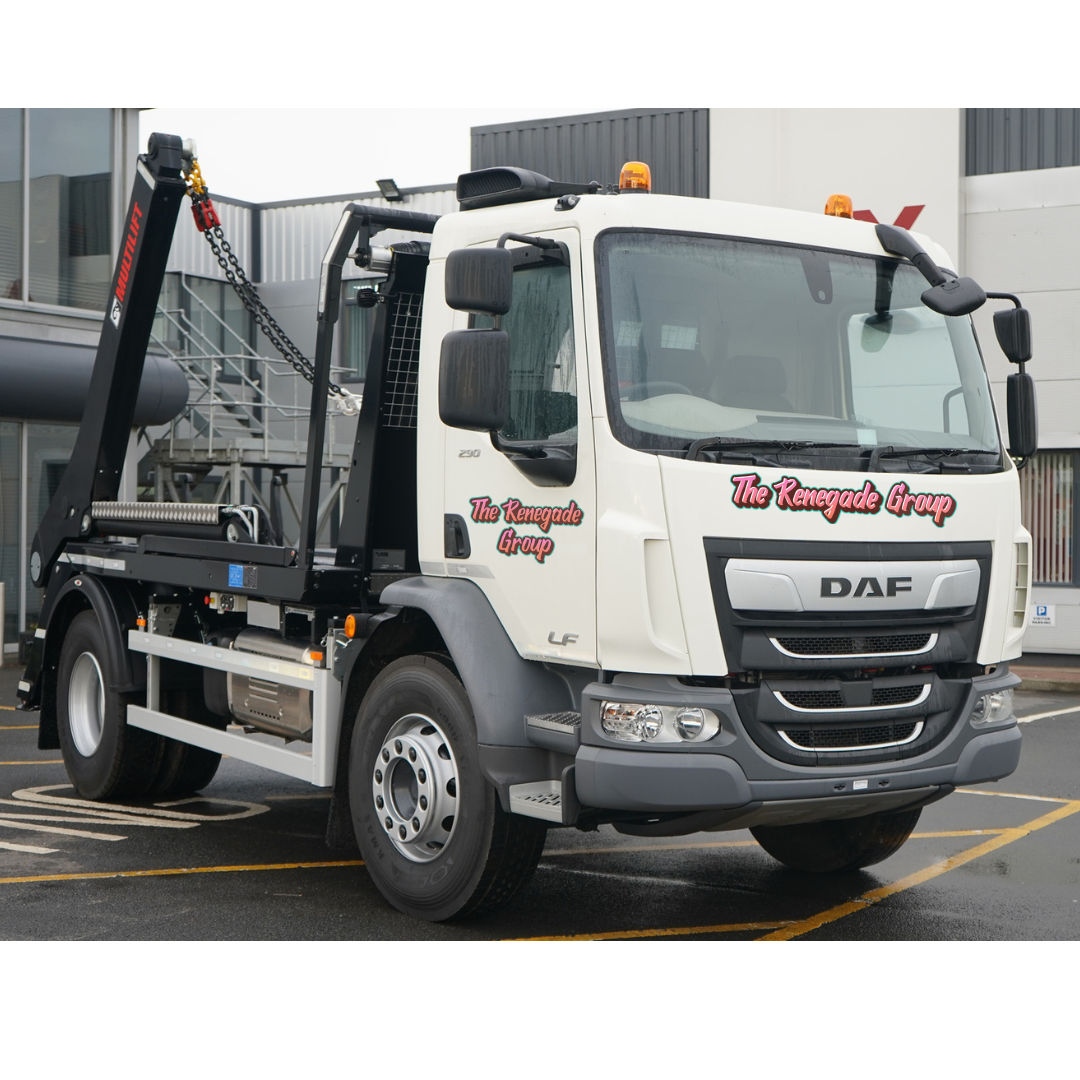Our Services
-

Skip Hire
Explore our range of skips, from compact mini skips to heavy-duty roll-on/roll-off containers. Our experienced team is ready to assist you in choosing the right skip for your project. Trust Renegade for reliable, affordable, and eco-conscious skip hire services. Let's simplify waste management together.
-

Grab Hire
Discover the Renegade difference — where efficiency meets environmental consciousness. From soil and rubble to construction debris, our grab hire services are the solution for your large-scale waste removal needs.
-

Muck Away - Tipper Hire
Explore the difference that our dedicated haulage team and Aggregate services can make for your next project. Let us be your go-to choice for seamless haulage and aggregate solutions.
Book Online
Skip Hire
Skip the hassle, choose the easy way to handle your waste! Welcome to our Waste Management Division, your premier solution for all your waste management needs. We understand that dealing with rubbish and debris can be a cumbersome task, but we're here to make it a breeze. Whether you're renovating, cleaning up after an event, or simply maintaining your property, we've got the skips to suit your needs. Let us help you skip the stress and get rid of your waste efficiently and responsibly. Discover the convenience today, Contact the team:
Skips@renegadeinfrastructure.co.uk
-
Our range of skips ensures that you have the right container for efficient waste disposal. Here's an overview of our skip sizes:
Mini Skip (2-3 cubic yards):
Ideal for small domestic projects like garden clean-ups or DIY tasks.
Compact and easily maneuverable, fitting into tight spaces with ease.
Midi Skip (4-6 cubic yards):
Perfect for larger household projects or moderate amounts of construction waste.
Offers a balanced capacity for residential renovations and clear-outs.
Builder's Skip (8-10 cubic yards):
A popular choice for construction sites and larger-scale projects.
Accommodates significant amounts of building materials, debris, and waste.
Roll-On/Roll-Off Skip (20-40 cubic yards):
Designed for large-scale industrial projects and substantial amounts of waste.
-
When referring to "skip waste types," it typically involves the various categories of waste materials that can be disposed of using skips, which are large containers used for the collection and transportation of waste. Skip waste types can vary, and it's essential to handle and dispose of each type appropriately. Here are common skip waste types:
General Waste:
Household waste
Non-recyclable materials
Light construction debris
Green Waste:
Garden waste
Plant clippings
Organic materials
Construction and Demolition Waste:
Bricks and rubble
Concrete and asphalt
Wood and timber
Plasterboard
Metal
Inert Waste:
Soils and earth
Rocks
Clay
Mixed Waste:
A combination of general waste, recyclables, and other materials
Hazardous Waste ( WE DO NOT ACCEPT THIS)
Materials that pose a threat to human health or the environment
Paints, solvents, asbestos, chemicals
Electrical and Electronic Equipment (WEEE IS NOT ACCEPTED ):
Old appliances ( NOT ACCEPTED)
Electronics and electrical equipment
Batteries
Recyclable Waste:
Paper and cardboard
Glass
Plastics
Metals
Wood Waste:
Timber and wood products
Pallets
Plasterboard Waste:
Gypsum-based construction materials
Drywall and plasterboard
-
House Waste Removal
Commercial Office Clearance
Construction Site Clearance
Builders Waste Removal
New Law- April 2024
What is the new law
Workplaces will need to separate the materials listed below for recycling. Workplaces will also need to arrange for the waste to be collected separately from other waste.
paper and card
glass
metal, plastic, and cartons and other similar packaging (for example coffee cups)
food – only for premises that produce more than 5kg of food waste a week
unsold small waste electrical and electronic equipment (sWEEE)
unsold textiles
Putting all your waste into a single bin will not be allowed if any of these materials are in there.
Each group of materials must be kept separate from each other. For example, glass must be collected on its own, but workplaces can collect metal, plastic and cartons together in the same container.
Before putting items in the recycling bins think about whether you can reuse them for something else.

